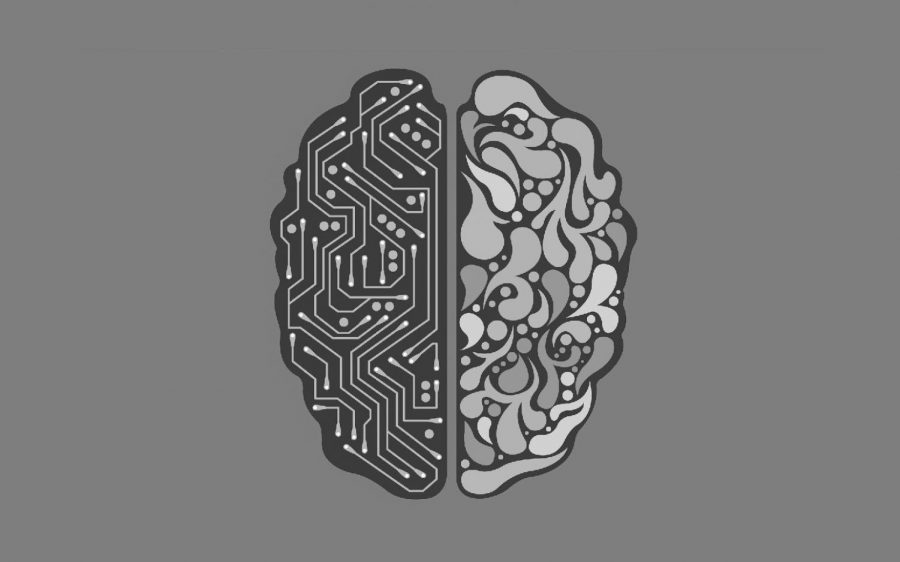OPINION: WSU should invest more into artificial intelligence
AI brings innovation, provides many benefits; deserves additional time, research, funding
The world is turning more and more towards artificial intelligence. Though WSU is already doing work on that front, it should be higher on their list of priorities. AI deserves more time and resources.
September 6, 2019
Terminator, The Matrix, Westworld. Our view of artificial intelligence is shaped by movies and TV, suggesting evil robots and omnipotent computer systems. However, AI exists, and it’s not bent on world domination.
Instead, AI is involved in almost every facet of our everyday life — and it’s being developed right now by students and professors at WSU. Given its extreme importance and applicability to virtually all fields, a keen focus on AI must be one of the key goals of the WSU engineering division.
AI is a key component in almost everything we own and use. From medicine to business, machine learning helps computing systems get smarter, faster and more efficient.
“As computational power and the AI capabilities have grown, it’s now assisted or taken over almost every field that you can see,” said Diane Cook, a WSU computer science regents professor.
Compare AI to a human brain, which learns and gets better at tasks. In the same way, programmers design AI to learn and react to change, so when AI is combined with, for example, a stock market prediction program, the intelligence can make better choices about which stocks might be worth buying in the future.
“What’s the stock price of a company going to be next week?” asked Lawrence Holder, a WSU professor of computer science, with an emphasis in machine learning. “Well, let’s train it [AI] on all of the stock prices for the company in the past and all the companies that are in the same industry, and based on all that information, you can usually do a good job predicting what the price is going to be.”
AI is also incredibly applicable to everyday consumer life, even, as Cook said, making your home smarter and more efficient. An AI-compatible “smart” home, Cook said, “senses the state of the building and the state of its residents, reasons about them, and it takes an action to improve their experience, maybe to provide health assistance or to provide security.”
AI-compatible cars have also grabbed headlines recently and have great potential to be an integral part of the transportation sector, from personal-use, self-driving Teslas to driverless long-haul trucks, delivering goods with no human pilot.
AI also has a multitude of applications in the medical field, a major sector of the economy. Massive amounts of patient data are transmitted and recorded every second, and a machine-learning AI would be able to sort out and make sense of the data with greater efficiency than a human operator.
How long certain patients stay in the hospital, the success rate of a given medical procedure and millions of other variables would all be fed into the AI system for analysis.
“That’s where the machine learning comes in,” Holder said. “I can train an algorithm to
predict how long a patient is likely to stay in the hospital.”
Obviously, this technology doesn’t just benefit computer scientists. The applicability of artificial intelligence spans all majors and interests.
“Any discipline can benefit from having data science and machine learning knowledge, because everyone wants to apply that to their particular problem,” Holder said.
Businesses have also recognized the potential of AI, and multiple billion-dollar companies are investing heavily in projects related to machine learning, such as Google’s Deep Mind project, and Tesla’s line of automated cars.
“In order to be competitive, you need to understand AI, and in order to help your company grow, you need to be able to design and apply AI,” Cook said.
Artificial intelligence is, quite literally, the technology of the future. Even 20 years ago, we fantasized and theorized about intelligent machines whose capacities could surpass our own, becoming smarter, faster and better. Now that dream is much closer to becoming a reality.
“In the last 10 years, AI’s really made some big strides, and it has the potential to really impact society — soon,” Holder said.
WSU has already recognized this, and there are some incredibly intelligent members of the faculty working on groundbreaking AI projects. As a university, we have to focus on AI’s incredible potential in virtually every field, from agriculture, to medicine, to the arts.
“For many years, AI was a branch of computer science, but now it’s really becoming a global set of ideas,” Cook said.
The wave of the future is in machine learning, and the sooner we devote more resources, more time and more effort to that inscrutable fact, the sooner we can begin to see the rewards.










A • Sep 6, 2019 at 5:35 pm
You should investigate then as to why they loss two professors that focused on artificial intelligence